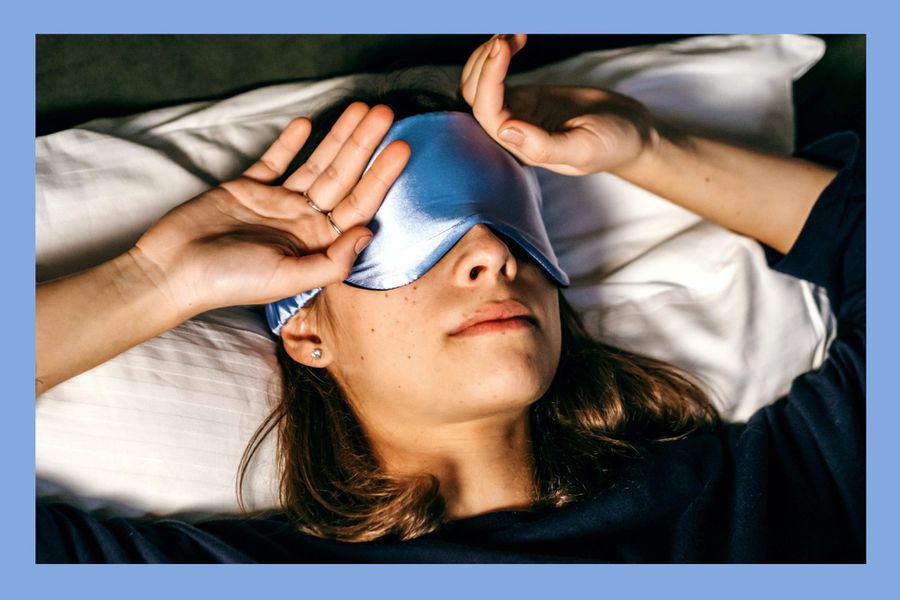
While some sleep with the TV or light on, others require total darkness for a good night’s rest. But failing to create a dark environment for bedtime isn’t necessarily a harmless preference. It may compromise your health in some pretty serious ways, according to a new study published in the Proceedings of the National Academy of Sciences. (
The study, which was conducted by a team at Northwestern University, involved the observation of 20 young adults. Researchers had study participants sleep in one of two conditions. One group slept in a dimly-lit room one night, followed by a night of sleep in a room with overhead lighting. The other group slept two consecutive nights in dim lighting. The results are seriously eye-opening (no pun intended).
Measures of insulin resistance (when your body stops responding to insulin, the hormone that helps glucose enter cells and reduces the amount that enters your bloodstream) were higher among the people who slept with overhead lighting, according to the researchers. People in this group also exhibited higher heart rates. Based on these findings, researchers believe sleeping with ambient light could pose a threat to your cardiovascular function and glucose regulation — both of which could put you at greater risk for chronic health issues.
“The results from this study demonstrate that just a single night of exposure to moderate room lighting during sleep can impair glucose and cardiovascular regulation, which are risk factors for heart disease, diabetes and metabolic syndrome,” stated senior study author Phyllis C. Zee, M.D., Ph.D., Director of the Center for Circadian and Sleep Medicine and Chief of Sleep Medicine at the Northwestern University Feinberg School of Medicine, in a press release.
While the results of this study may come as an unpleasant surprise to those who fall asleep with Netflix on, they’re in line with other findings about light’s effect on the body. A 2014 study published in Behavioral Brain Research found that exposure to daytime light could increase alertness — which is great during the day, but not exactly what you’re after when trying to get a good night’s sleep.
"We showed your heart rate increases when you sleep in a moderately lit room," stated co-author Daniela Grimaldi, M.D., Ph.D., research assistant professor of neurology at Northwestern, in the press release. "Even though you are asleep, your autonomic nervous system is activated. That's bad. Usually, your heart rate together with other cardiovascular parameters are lower at night and higher during the day."
Additionally, a 2019 study published in the Journal of the American Medical Association Internal Medicine linked light exposure during sleep to an increased risk of weight gain. “Now we are showing a mechanism that might be fundamental to explain why this happens. We show it’s affecting your ability to regulate glucose,” says Dr. Zee in the press release.
If you’re someone who sleeps with light exposure but feel generally well-rested, these results are still worth considering, because the researchers point out that study participants couldn’t perceive any differences in their bodies after sleeping with ambient light. But according to Dr. Grimaldi’s statement in the press release, the brain can sense the difference in light condition — and if you’re sleeping with ambient light exposure, your brain may feel a similar effect to what it would experience with light or fragmented sleep.
These findings are based on the observation of just 20 people; they don’t definitively indicate that you’ll face serious health problems if you sleep with light exposure. But if you want to be on the safe side, there’s no harm in adjusting your sleep environment to eliminate light. You can reduce your exposure to ambient light by turning off your TV, investing in blackout shades, and using a sleep mask. It certainly wouldn’t hurt.






































